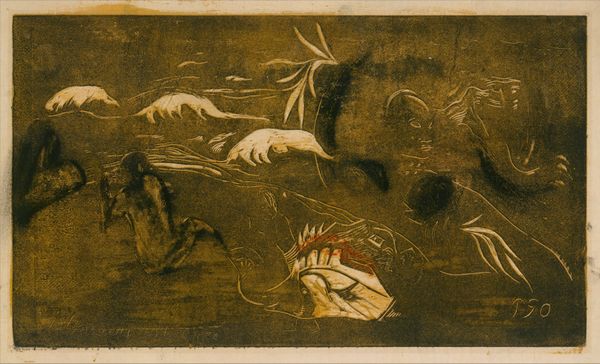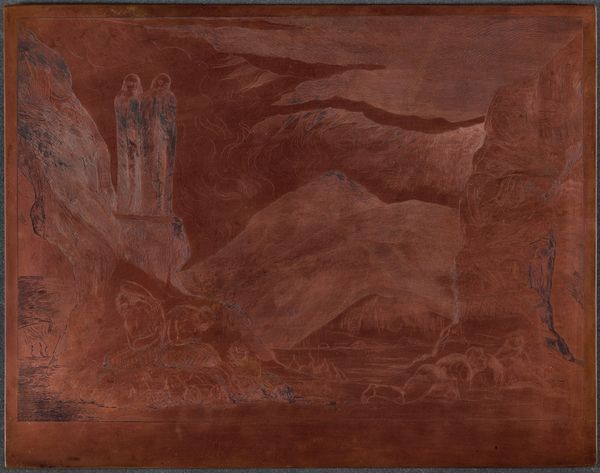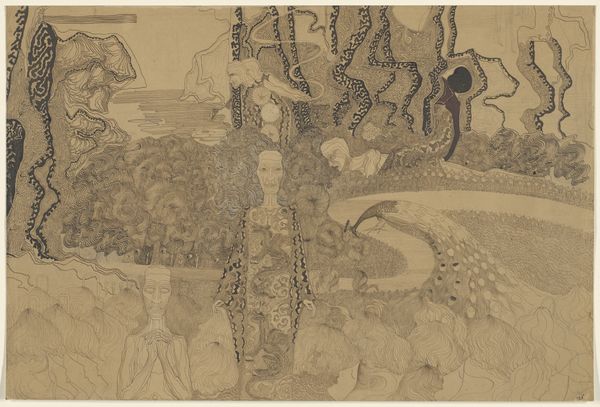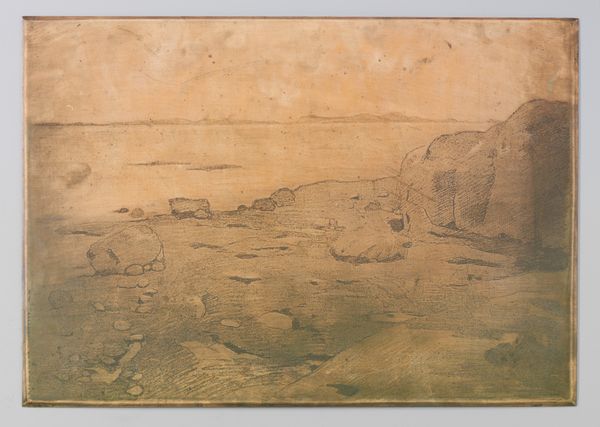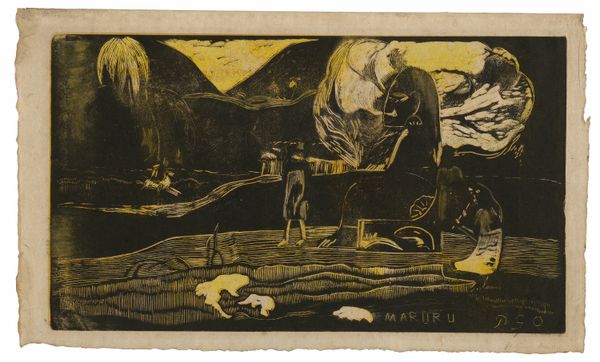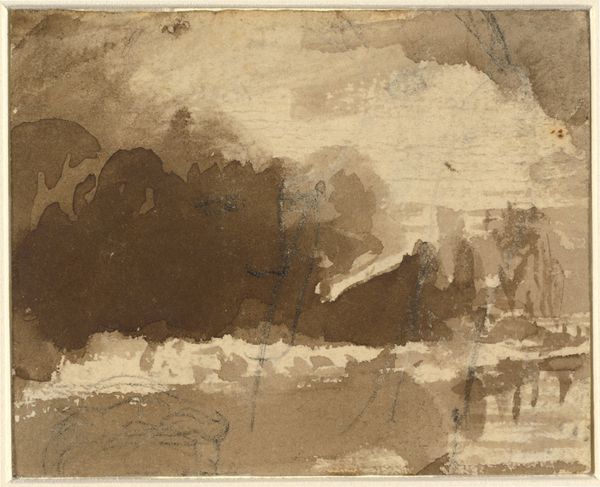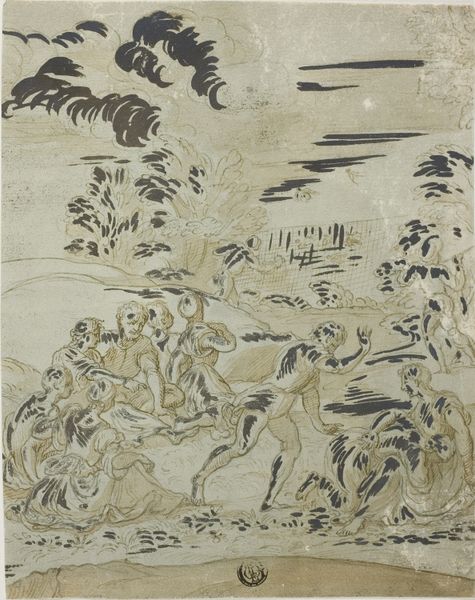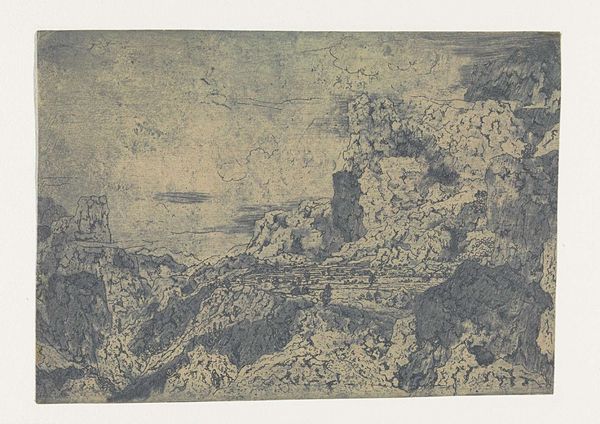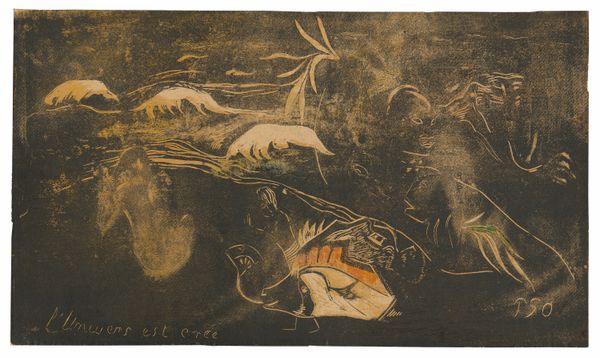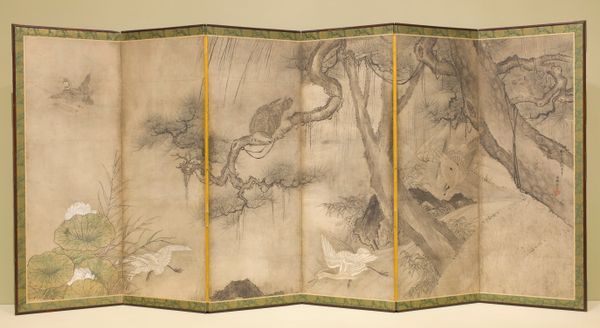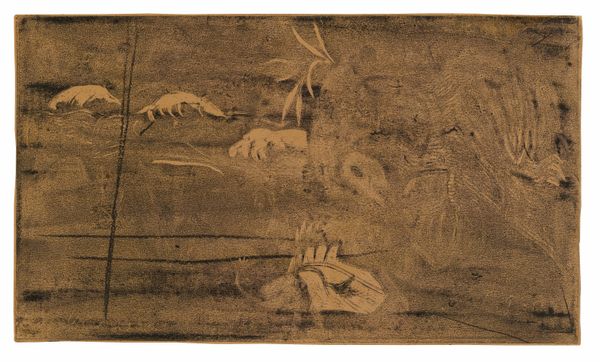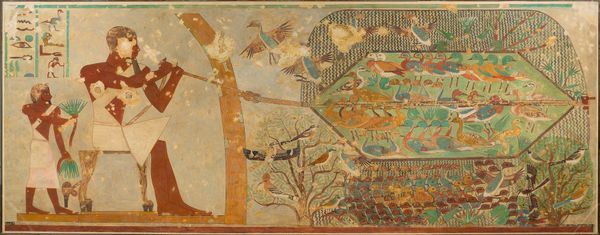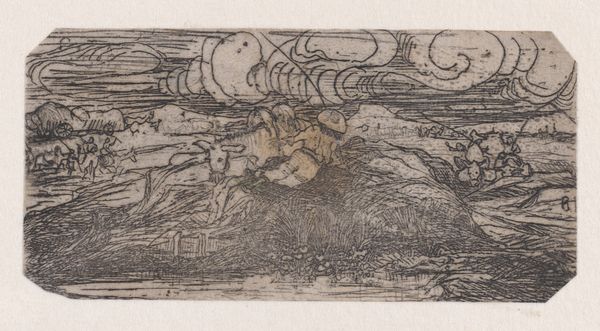
Maruru (Offerings of Gratitude), from the Noa Noa Suite 1893 - 1894
0:00
0:00
drawing, print, paper
#
drawing
#
toned paper
#
water colours
# print
#
possibly oil pastel
#
paper
#
handmade artwork painting
#
coffee painting
#
underpainting
#
france
#
painting painterly
#
watercolour bleed
#
watercolour illustration
#
watercolor
Dimensions: 204 × 355 mm (image); 207 × 358 mm (sheets)
Copyright: Public Domain
Paul Gauguin made this woodcut, Maruru, as part of his Noa Noa suite, a visual record of his time in Tahiti. This wasn't just drawing; it was a hands-on engagement with the material world. Gauguin used wood, a common material, but his approach was far from conventional. Look at the rough textures and the way he left areas of the block untouched. This wasn't about precise representation; it was about conveying a feeling, an experience. The labor involved is evident in every line, every gouge. It's a physical process, a direct translation of the artist's hand to the wood. And consider the social context: Gauguin, a European artist, depicting Tahitian life. This print raises questions about cultural exchange, appropriation, and the artist's role in representing another culture. This was not an industrial process, but one of care and attention. Ultimately, "Maruru" invites us to consider the connections between materials, making, and meaning. By looking closely at the woodcut, we can gain a deeper understanding of Gauguin's artistic vision and its complex relationship to the world around him.
Comments
No comments
Be the first to comment and join the conversation on the ultimate creative platform.

